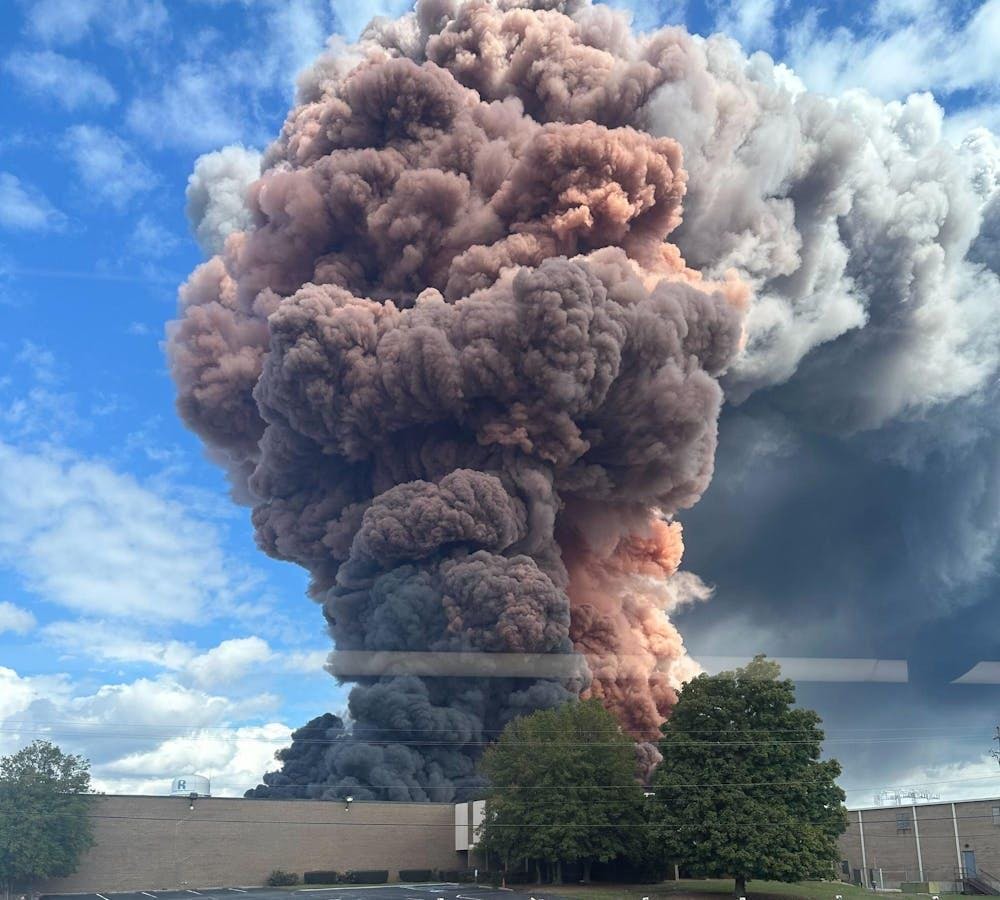Rockdale County commissioners launched a federal class-action lawsuit against BioLab and its parent company, KIK Consumer Products, for damages to local citizens and companies. The lawsuit, which commissioners filed on Oct. 29, came a month after a chemical fire erupted at the BioLab facility in Conyers, Ga, about six miles from Oxford College.
The Rockdale County commissioners filed allegations, including exposure to toxic chemicals, failure to warn the public and significant environmental damage, against the plant after the fire on Sept. 29. The Rockdale County commissioners are seeking a court order to permanently terminate the BioLab plant, and a petition to shut down BioLab has garnered over 10,000 signatures.
Previous BioLab fires in 2004, 2015, 2016 and 2020 led to evacuations, injuries, voluntary evacuations and the shutdown of Interstate 20, respectively.
Rockdale County Commissioner Sherri Washington discussed the motivations behind the lawsuit at a press conference on Oct. 21.
“[BioLab’s] risk to this community far outweighs any benefit that we could possibly glean from their operation in this county,” Washington said. “For three weeks, I have listened to the numerous physical, mental and emotional tolls that this company’s negligence has caused our residents, and we want them gone.”
A few days after the fire, the wind pushed the chemical smoke toward Emory University’s Oxford campus, causing classes to go remote. Isabel Slavens (26Ox) said she smelled a chlorine smell across campus.
“It smelled not unlike a hotel pool, indoor pool, where it was very heavily chlorinated,” Slavens said. “But it also was kind of dusty at the same time, the ash. It wasn’t to the point where it was difficult to breathe or anything, but I did wear a disposable mask while I was walking around outside of campus.”
The chemical plume persisted for several days, causing low visibility on Interstate 20 and leaving a chlorinated smell in the area nearby. According to the Atlanta Journal-Constitution, winds carried smoke into the southeastern metro areas of Atlanta, resulting in hazy skies and a chlorine odor.
In an Oct. 2 email, Emory Communications informed Emory and Oxford students about the possibility of the chemical smoke drifting into Emory’s campuses as it spread across metro Atlanta.
“Due to wind and changes in weather patterns, communities across metro Atlanta — including Emory’s campuses — may see smoke and smell an odor over the next several days because of the Conyers BioLab fire,” the email read.
A lab conducted by Georgia Institute of Technology Atmospheric Chemistry Professor Greg Huey measured abnormal levels of chlorine, bromine and other unknown chemicals present in the air. Emory Environment Science Research Professor Eri Saikawa, a colleague of Huey, commented on the implications of these lab results.
“The problem with this kind of fire is that we don’t know what was really burnt, and so we have no clue what we were exposed to,” Saikawa said.
Oxford Climate Reality Project co-President Tula Larsen (25Ox) said she is concerned about the chemical fumes’ effects on Emory’s campuses.
“The existence of the BioLab is a huge environmental threat to not only the county but the surrounding community, like Emory and Oxford,” Larsen said. “In terms of an environmental perspective … it’s important to terminate the facility.”
Oxford College Student Government Association Health and Wellness Chair Luccas Perez (25Ox) said that, while he agrees with the county’s decision to file the lawsuit, he is concerned about the possible economic effects a closure would create.
BioLab was the largest taxpayer in Rockdale County and employed 484 workers — making the pool and spa chemical facility Rockdale County’s eighth-largest employer.
“Closing it down is reasonable, replacing it with something else … I don’t know what, but something to make up for the loss in jobs and economic loss in revenue,” Perez said.

Catherine Nan (she/her) (26Ox) is majoring in Applied Math and Statistics. She is from Potomac, Maryland and has played the flute for ten years. You can find her on a bike ride or at a concert.










